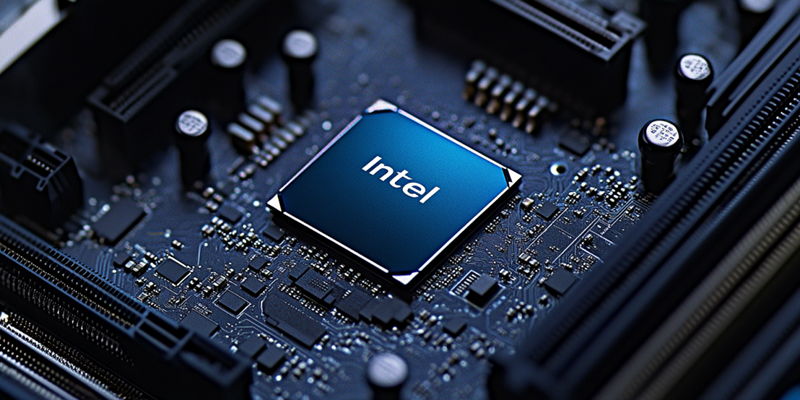Intel has recently made significant changes to its Return Merchandise Authorization (RMA) process, particularly in the context of addressing issues with faulty Raptor Lake CPUs. The initial stages of the RMA process were widely criticized for being cumbersome and uncooperative, but the company’s latest approach has surprised many by offering generous solutions such as free upgrades and even full refunds. Customers have reported replacing their defective CPUs with higher-end models and receiving positive responses from Intel without much hassle. This shift in policy represents a marked departure from Intel’s earlier, more stringent practices, which required customers to provide extensive proof of the defect and even submit credit card information for verification.
The transformation can be evidenced by individual experiences shared on platforms like Reddit and other social media channels. One user highlighted a case in which they sent in a faulty Core i9-13900K CPU and received a higher-end Core i9-14900K in return, citing Intel’s reported lack of available 13900K chips. The service was completed swiftly in just three days, significantly contrasting with another user’s report of having no response from Intel since August 10, despite filing a complaint. Furthermore, other users have shared their positive experiences, noting that Intel fully refunded the purchase price and even covered the shipping costs, a significant improvement from previous RMA procedures.
Customer-Friendly Adjustments
Intel’s earlier RMA processes were not only time-consuming but also painful for customers who had to endure long verification periods and submit security deposits. These processes often created frustration and dissatisfaction among Intel users, tarnishing the company’s reputation. However, the recent changes reflect a broader effort by Intel to win back customer trust and loyalty. The company extended the warranty period for Raptor Lake CPUs by two years in August, suggesting a concentrated effort to improve customer satisfaction and rectify the mistakes made in handling earlier RMA claims. This move is a strong indicator that Intel is listening to consumer feedback and taking strong measures to improve their customer service framework.
By making these policies more lenient and expediting the entire RMA process, Intel aims for a more customer-oriented approach that significantly enhances consumer experience. Reports have shown that Intel’s new RMA policy allows customers to receive replacements or refunds without the previous extensive verification requirements. This has led to much swifter resolutions of consumer issues, providing relief to customers who might have been dealing with defective products. Moreover, the added convenience of not having to submit credit card information and avoiding security deposits has made the process easier and more accessible for all Intel users, a crucial factor in customer satisfaction.
Notable Transformations
The recent experiences shared by Intel customers underscore a notable transformation in how the company addresses faulty CPUs. While earlier processes were perceived as onerous and sometimes accusatory, recent reports demonstrate a more lenient, expedited, and customer-friendly approach to the RMA process. Interestingly, some users have even reported receiving replacements for their faulty CPUs without having to prove the defect existed in the first place. This surprising generosity may be Intel’s calculated strategy to mitigate the potential fallout from the microcode flaw identified in the Raptor Lake series. Despite some inconsistencies in user experiences, the prevailing sentiment is that Intel is showing unprecedented generosity in resolving consumer complaints.
The impact of these policy changes extends beyond just resolving defective units; it has the potential to significantly shift Intel’s market reputation. Customers are more inclined to remain loyal to a company that resolves their issues promptly and efficiently, and Intel’s newfound generosity in their RMA policies is a clear step in this direction. By addressing customer grievances more promptly and providing robust solutions, Intel is demonstrating an increased commitment to consumer satisfaction, which is crucial in maintaining a competitive edge in the ever-evolving technology landscape. This transformation might serve as a model for other tech companies dealing with similar issues, showing that consumer trust can be rebuilt through timely and effective customer service policies.
Broader Implications
Intel has recently revamped its Return Merchandise Authorization (RMA) process, especially for addressing faulty Raptor Lake CPUs. Initially, the procedure was heavily criticized for being cumbersome and uncooperative. However, the company’s newest approach has pleasantly surprised many by offering perks like free upgrades and full refunds. Customers have shared experiences of replacing defective CPUs with higher-end models and receiving positive responses from Intel with little hassle. This shift reflects a significant departure from Intel’s stricter past, which required extensive proof of defects and even credit card details for verification.
Evidence of this transformation can be seen on platforms like Reddit and social media. For instance, one user sent in a malfunctioning Core i9-13900K and got a higher-end Core i9-14900K in return, due to a reported shortage of 13900K chips. This exchange was swiftly completed in just three days, contrasting sharply with another user’s report of receiving no response from Intel since August 10 after filing a complaint. Additionally, other users noted that Intel fully refunded their purchase prices and covered shipping costs, marking a notable improvement in RMA procedures.

